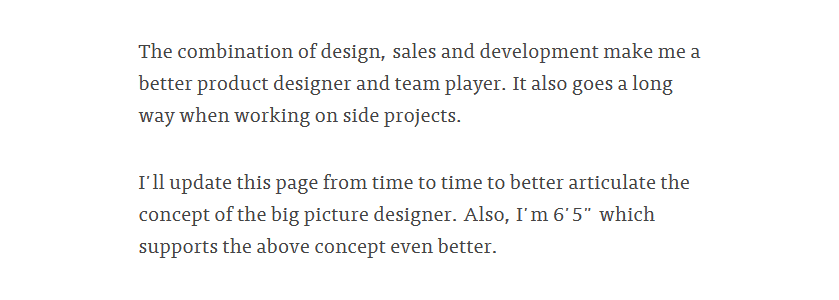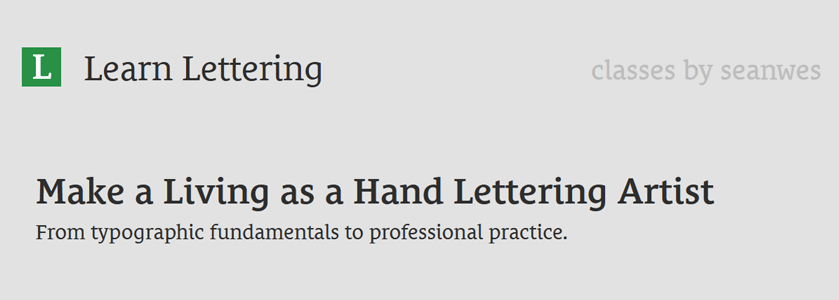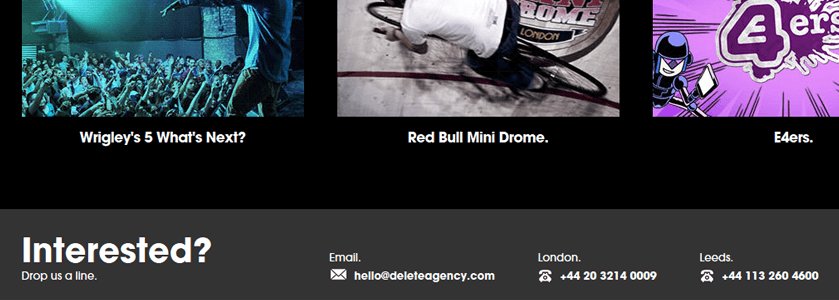5 Tips To Enhance Your Portfolio
- 3 min read
1.) Be Friendly and Professional
It may sound like an impossible thing to do, being friendly and professional, but hear me out. Your portfolio site is one of the best tools you have to get work. Obviously you need to get people there first, but we’ll cover that in a future post. Below are five tips on how to enhance your portfolio and ultimately bring in more work from it.
When writing the copy make sure to make yourself sound professional but at the same time sound friendly. If a potential client is skimming your bio or services they want to hear, most of all, what you’re going to do for them and how you’re a better choice over the last guy or girl they looked at.
However you also need to be approachable. No one wants to talk to a computer, they want a person. I’m sure you hate going through automated call centres for 20 minutes before speaking to a human being as much as everyone else does.

2.) Catchy Images with In-Depth Descriptions
Something not a lot of people take much care in is how the work in their portfolio is displayed. People coming to your site are likely there to look at your work. If it’s displayed in a care free manner then why should potential clients care about hiring you and paying out good money on your services?
Another part of a good portfolio piece is an in-depth description. Don’t take that the wrong way, I don’t mean lengthy, undesirable posts on every detail you can recall. Instead write about what you did for the client and how you solved all their problems.

3.) Keep The Intro Short and Descriptive
Go to my portfolio site and read my intro text. Short and sweet, right? I made sure to be as descriptive as possible within the first few words.
Sometimes I go on sites and think “what am I even looking at?”. They’ll be some vague header saying something along the lines of “Client focused, optimised for users and in-line with current trends”. Tell me something, do you know what the product or service is by reading that? The answer is no. It may give you an idea but that in itself is a big problem. You don’t want a brand-spankin-new user trying to guess what you’re offering.
People like to be told what to do and at the end of the day it’s easier for both parties if the path is clearly laid out for them.

4.) Focus on a Specific Client Type
When I first heard about doing this I was apprehensive to say the least. I want loads of work flooding in, so much I have to turn some of it down. So why would I alienate prospective clients? The answer is simple, by focusing on specific clients you can gear your sales pitch more towards what they want.
Just remember it’s always better to be something to a few people rather than nothing to everyone.

5.) Encourage Prospects To Take Action
How are you going to get work through your website? People are most likely to look through what you’ve got to offer and contact you through your contact page. It’s better to have links and buttons to that contact page scattered throughout your site so it’s easier for prospective clients to get in touch easily.
Take care however when putting your calls to action in any place you can think of. You want to guide the user to that contact form, not just send them there before they’re ready. This is where designing for your users comes into its element.

Conclusion – What To Do Now
After reading the tips above you should be ready to go make some important changes to your current portfolio and really make an important impact.
There are loads more tips and enhancements you can make but far too many for one post. If you’d like more of these articles just let me know in the comments.